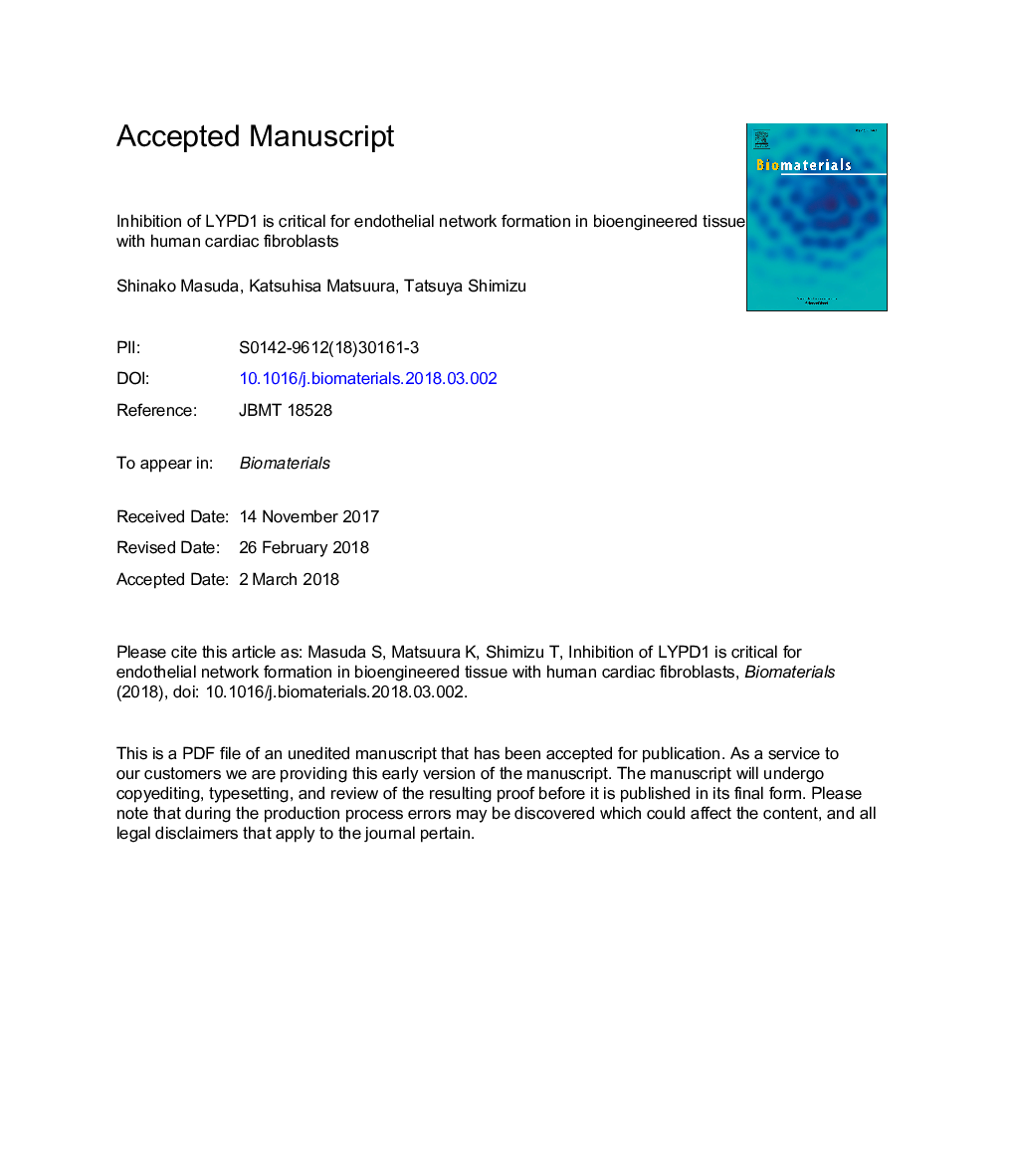| Article ID | Journal | Published Year | Pages | File Type |
|---|---|---|---|---|
| 6484561 | Biomaterials | 2018 | 62 Pages |
Abstract
Fibroblasts not only play key roles under physiological and pathological conditions in various tissues and organs including the heart but also are indispensable for fabricating bioengineered cardiac tissues and their functions through cell-cell interactions. Because tissue functions and cells surrounding fibroblasts in vivo are different among tissues, the properties of fibroblasts might be different according to their tissue origin. Understanding the molecular mechanisms of fibroblasts may lead to fabrication of bioengineered tissues close to biological tissues. In this study, we found a unique less angiogenic property of human cardiac fibroblasts in vitro compared with human dermal fibroblasts and identified the responsible gene. Cardiac fibroblasts inhibited vascular network formation in co-cultures with various types of vascular endothelial cells. Using microarray analysis and short interfering RNA (siRNA) screening experiments, we identified Ly6/Plaur domain-containing 1 (LYPD1) as responsible for the lack of endothelial cell network formation mediated by cardiac fibroblasts. Inhibition of the LYPD1 gene by siRNA attenuated the anti-angiogenic properties of cardiac fibroblasts, whereas the functional defect was rescued by addition of recombinant LYPD1. These findings suggest that cardiac fibroblasts possess anti-angiogenic properties mediated by LYPD1 and that inhibition of LYPD1 might contribute to the fabrication of vascularized functional bioengineered tissues.
Keywords
Related Topics
Physical Sciences and Engineering
Chemical Engineering
Bioengineering
Authors
Shinako Masuda, Katsuhisa Matsuura, Tatsuya Shimizu,
